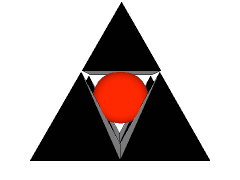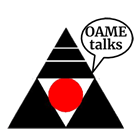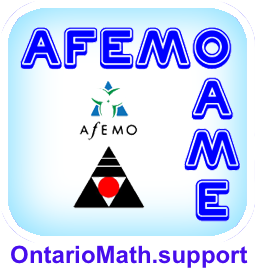President's Message - December 2020
A Little Bit About Myself

JUDY MENDAGLIO
judy.mendaglio@oame.on.ca
Hello again, everyone. Bonjour.
As I am writing this, we are now into the school year and things are pretty chaotic. Many schools are facing yet another reorganization as parents (including guardians) elect to have their children learning remotely because of rising regional COVID-19 numbers. Other schools are facing yet another reorganization because parents, seeing low infection rates in their regions, are deciding to send their children back into the classroom. I cannot recall a time when teachers were faced with this level of uncertainty - almost daily! All we can do is support each other as best we can, so that we have the energy to support our students, who are also feeling this uncertainty, and who may be experiencing levels of stress that surpass those of a "normal" year. Remember that, whatever subjects or courses you may be teaching, that teaching will only result in learning if students are able to feel safe, valued, and included.
I promised in my first column that I would tell you a little bit about myself in columns to come, and so, here we are. In that President's Message, I said that growing up in Montreal had a profound effect on my outlook in many ways, and that having worked in a field outside of education impacted who I became as a teacher.
First - Growing up in Montreal
From the moment that my husband and I arrived in London, Ontario from Montreal, Quebec, to attend graduate school, we felt like strangers in a strange land. Even though we were just a seven-hour drive down Highway 401 from where we had grown up, we found everything different. We often described the "culture shock" we experienced. We could not find foods we were used to (and, yes, the legendary Montreal bagels were one such food). In stores, price signs were weird - $6.49 rather than 6,49 $. We found the learning environment at Western very staid and stodgy (certainly compared to the informal "everyone heads to the pub after class" - profs and students together - that we had had in Montreal). We were not used to so much English. So much English! And we were English! We had come from a much more ethnically diverse, religiously diverse, culturally diverse city. Everything felt familiar (we spoke English, we knew winters), but at the same time, so foreign.
Many years later, when I decided to go back to school to pursue a professional future in education, I encountered another strange land. Now, recognize that I had studied mathematics, at school or at university, for 18 years. But, when I started my B.Ed. program, wow, what was all this stuff everyone was talking about? When we left elementary school in Montreal, there was no middle school, we started high school. Until Grade 7, we had Arithmetic on our report cards. Not math. "Math" began in Grade 8. Then there were the acronyms: BEDMAS, CAST, FOIL, SOHCAHTOA. I had never seen any of these before, yet everyone seemed to be completely familiar with them. I felt as though I should know these things too, and I was too uncomfortable to actually ask anyone what these things were, so I didn't, I did not even know they were acronyms until I saw them written down. I thought semesters were only in university and was shocked to find that students did not study math all year long. There was "March Break." What is that?
There were also the weird student-centred practices I needed to learn about: electives and spares, marks given for quizzes and tests, and marks accumulating all year long? Marks for doing homework? Really? Not assignments that were handed in, mind you, but homework. What is a Guidance Counsellor? And those super weird, non-descriptive course names. (Grade 10 Advanced? What happened to the Geometry course? The Algebra course? That's what I took.) When Grade 13 became OAC and then finally disappeared, I could not understand other teachers' consternation. We left high school after Grade 11 and, I suppose because we knew from the start that that was what was going to happen, we were "ready." I always felt that it was weird telling a 20-year-old student not to bring their coffee into class.
Studying to become a teacher in Ontario required not just that I learn about the Education Act and classroom-management techniques. No. I had to learn a new language, a new culture, and make some serious adjustments to what I perceived to be the natural, right way of doing math and teaching math.
I use this experience and these feelings as a lens through which to reflect on issues of culture, inclusivity, and equity in education. My experience of moving was really difficult for me, but it was minor compared to the experiences of many of our students. I know how easy it is to assume that everyone has shared our experiences and shares our beliefs. I still do it. But I am getting better. We are all getting better. We ask. We listen. That is the place to start. As we want our students to learn about mathematics, so too, our students want us to learn about them and see them as people, distinct from one another, in all their glorious differences and complexities. Our students are not like reproductions of an old master, hung side-by-side, indistinguishable one from another. They are each works of art, and they create a wonderful gallery experience for us, their teachers.
Previous Message:
CHA CHA CHANGES
Next Message:
Montreal's Mathematical Monuments


















 Like us on FaceBook
Like us on FaceBook